READING GROUP GUIDE



As she looks back on her life, Alessandra Corteggiani recalls her childhood and youth during the rise of fascism, the resistance, and the fall of Mussolini, and the lives of the women in her family and her working-class neighborhood, rigorously committed to telling “her side of the story.”
Alessandra witnesses her mother, an aspiring concert pianist, suffer from the inability to escape her oppressive marriage. Later, she is sent to live with her father’s relatives in the country, in the hope that she’ll finally learn to submit to the patriarchal system and authority. But at her grandmother’s farm, Alessandra grows increasingly rebellious, conscious of the unjust treatment of generations of hardworking women in her family. When she refuses a marriage proposal from a neighboring farmer, she is sent back to Rome to tend to her ailing father.
In Rome, Alessandra meets Francesco, a charismatic anti-fascist professor, who ostensibly admires and supports her sense of independence and justice. But she soon comes to recognize that even as she respects Francesco and is eager to participate in his struggle to reclaim their country from fascism, this respect is unrequited, and her own beloved husband is ensnared by patriarchal conventions when it comes to their relationship.
1 2 3 4
As a child, Alessandra feels neglected by her parents, who are still mourning the sudden death of her older brother. She attributes any bad impulses she has to his mischievous spirit. How does this resentment toward an absent but idolized male figure, combined with her hunger for love and recognition, especially from her mother, set the stage for Alessandra’s destiny?
From an early age, Alessandra is surrounded by women and develops a keen interest in their emotional and intellectual lives. From Eleonora, Lydia, and Sista in Rome to her grandmother and aunts in the country and Fulvia and Denise during the war, Alessandra monitors them all closely. How do these women’s relationships, living conditions, and personal stories contribute to Alessandra’s rage over the course of the novel?
While focused on telling “her side of the story,” Alessandra also profiles two generations of men—her father and uncle’s generation, who fought in the First World War, and Francesco, Dario, and Tomaso’s generation, who get swept up in the Second World War. How do these generations differ in their political and ethical beliefs and how does that affect their thoughts about and attitudes toward the women in their lives?
Upon reading the first draft of Her Side of the Story, Alba’s longtime editor (and friend) Arnoldo Mondadori said he found the ending unexpected and illogical. Alba replied that he didn’t understand Alessandra because he was a man: “This confirms, once again, the thesis of the novel: that the congenital difference between men and women elicits a painful misunderstanding that nothing can bridge.” How much of the action in this novel is provoked by a man misunderstanding a woman, in spite of her best efforts?
When it was first published, Her Side of the Story was considered experimental, combining, as it does, a variety of genres—comingof-age, historical, political, feminist, realist, neorealist, and autobiographical fiction. In her diary, Alba wrote that Alessandra was “the only character in which I expressed myself fully,” and while she was working on the book she often signed her telegrams to Mondadori “Alba and Alessandra.” How does Alba use these different genres to add depth and complexity to women’s lives as they are lived, told, desired?
Even as she tells her story, the odds are against Alessandra. Her actions appear as love riddled, though she inevitably saves herself, turning the gun away from her own temple. Is Alessandra’s last act with Francesco an act of passion, mania, or destiny?
In the end, no one speaks up on Alessandra’s behalf, except her grandmother and, begrudgingly, her father. In what ways does support from the people she loves continue to elude Alessandra? Why is her grandmother’s defense of her important and how is the abandonment by her cohort of women significant?
Alba called Her Side of the Story a novel about a “great love and a great crime.” Given what you know about Alba’s own life, which relationship do you think she was referring to as a “great love” and who would she think committed the “great crime” in these pages?
The Postcard by Anne Berest
Hello Beautiful by Ann Napolitano
Lucy by the Sea by Elizabeth Strout
The Copenhagen Trilogy by Tove Ditlevsen
The Lying Life of Adults by Elena Ferrante
The Lost Daughter by Elena Ferrante
The Margot Affair by Sanaë Lemoine
Adèle by Leila Slimani
Family Lexicon by Natalia Ginzburg
My Men by Victoria Kielland
In Diamond Square by Mercè Rodoreda
The Artificial Silk Girl by Irmgard Keun
The Street by Ann Petry
Good Morning, Midnight by Jean Rhys
This translation of Alba de Cespedes’ War Diaries by Ann Goldstein was published in the Paris Review in June 2023
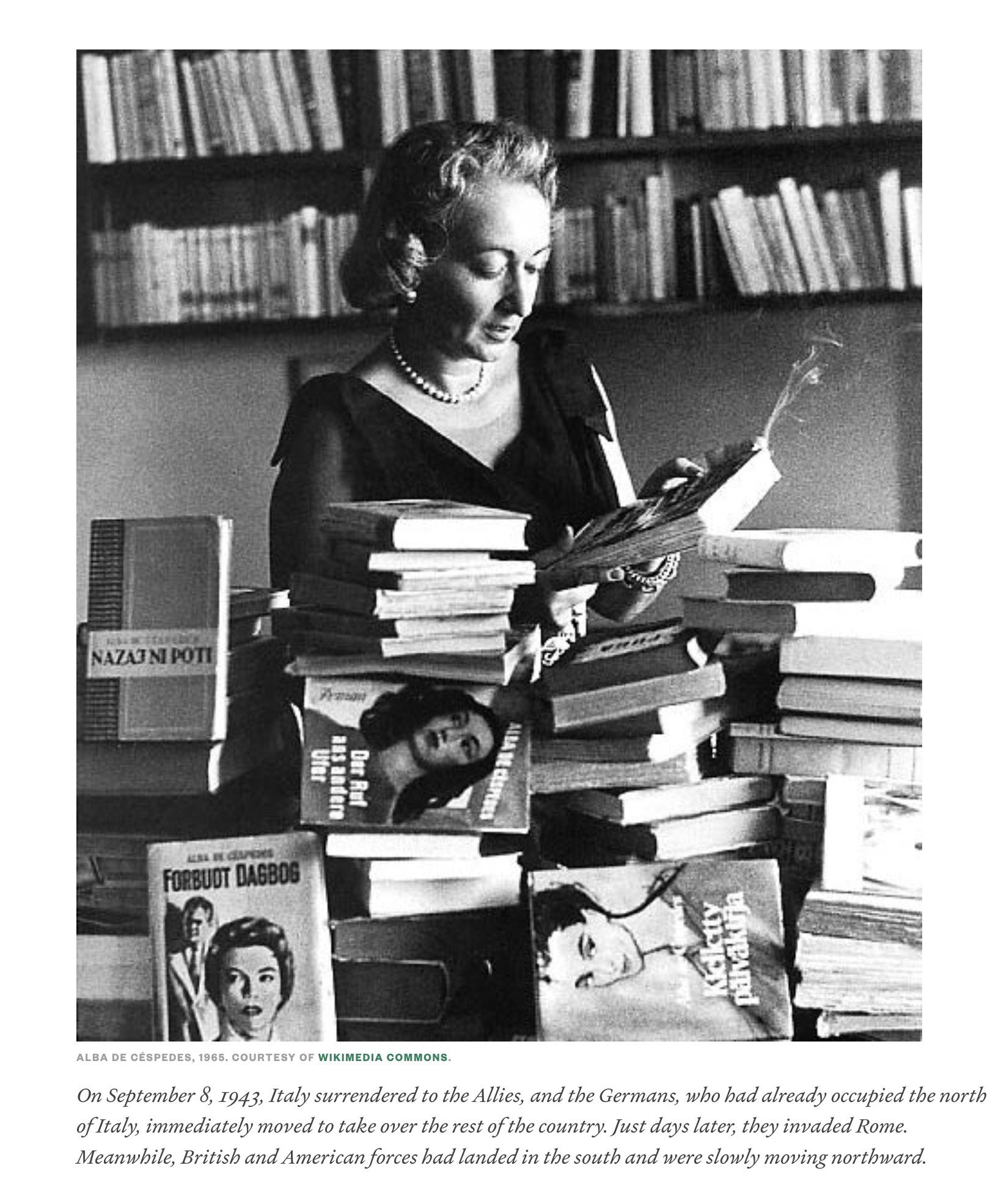





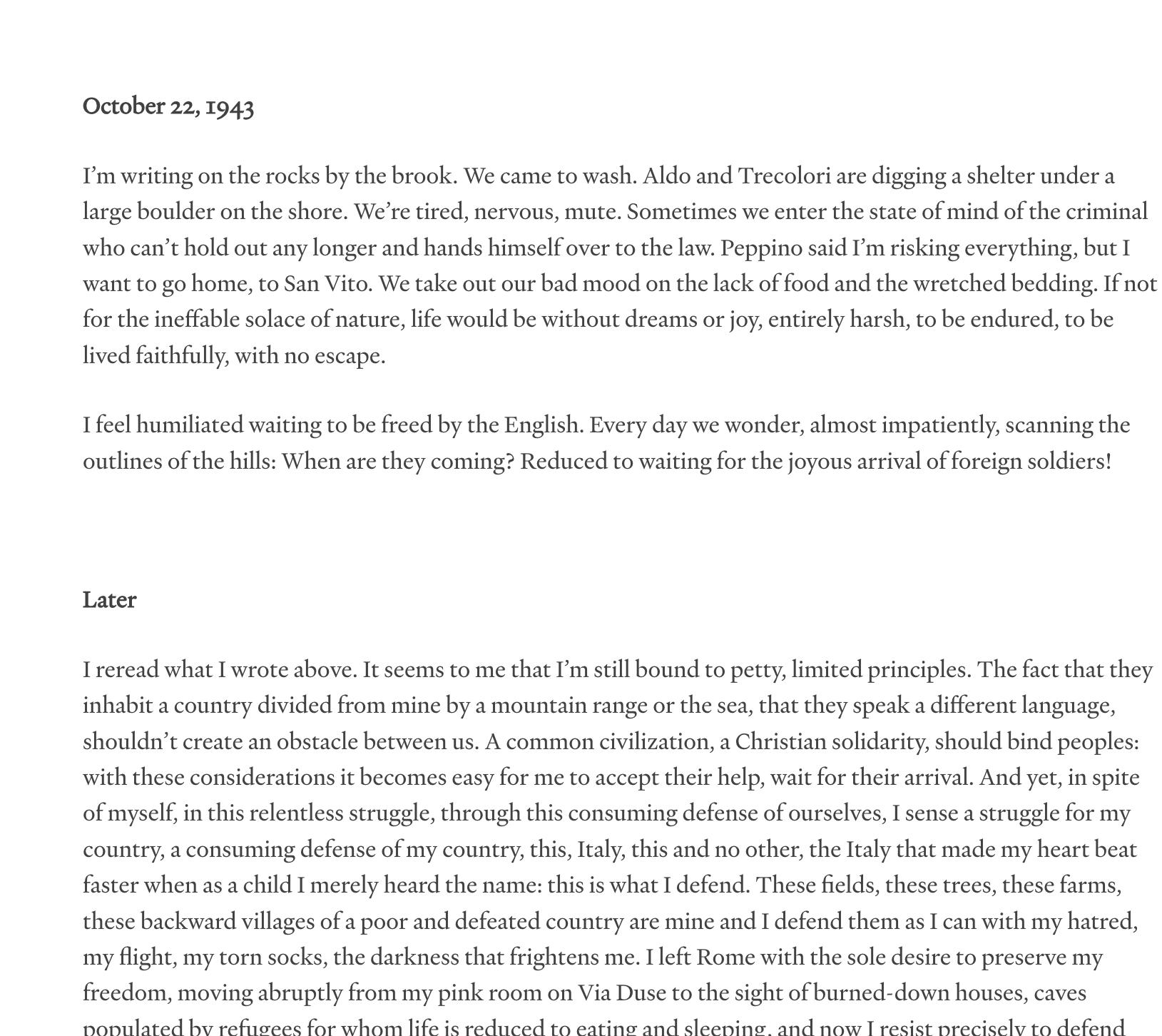
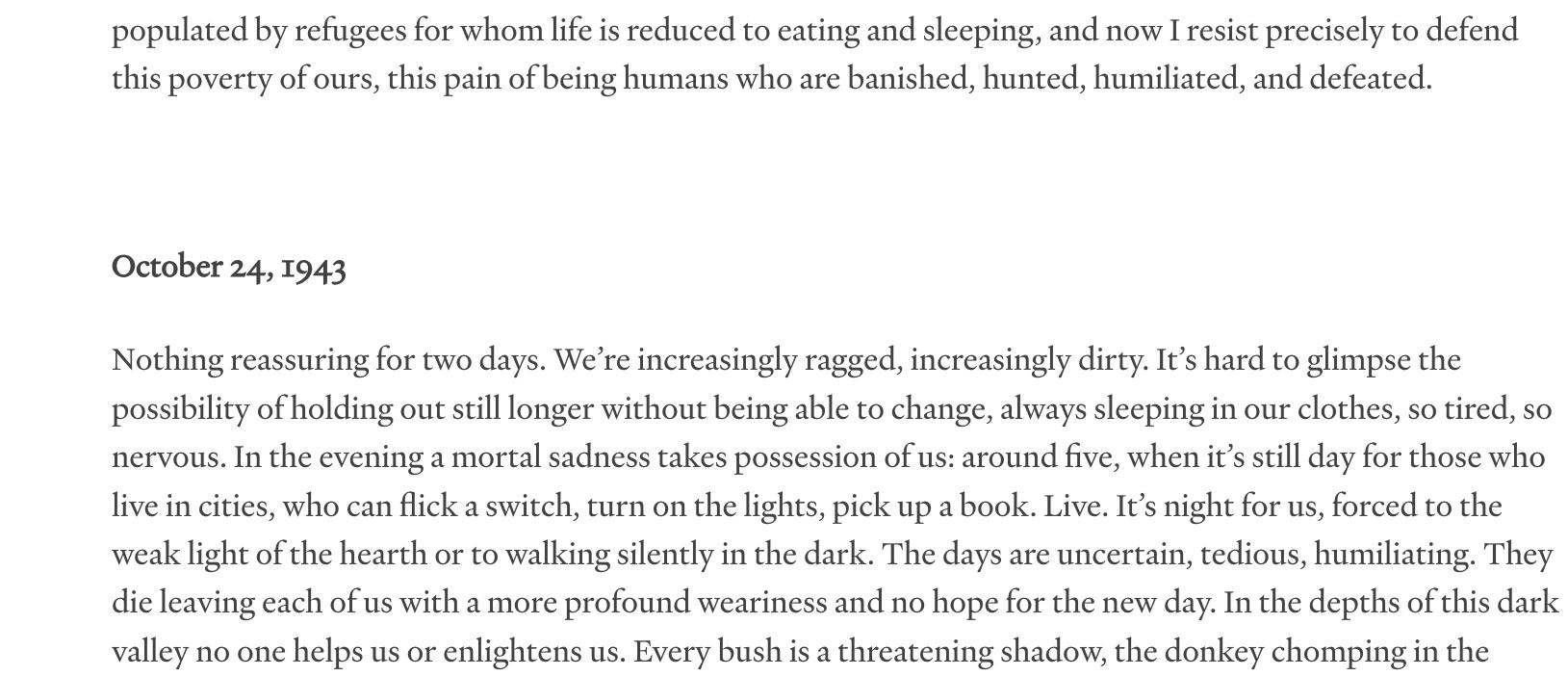
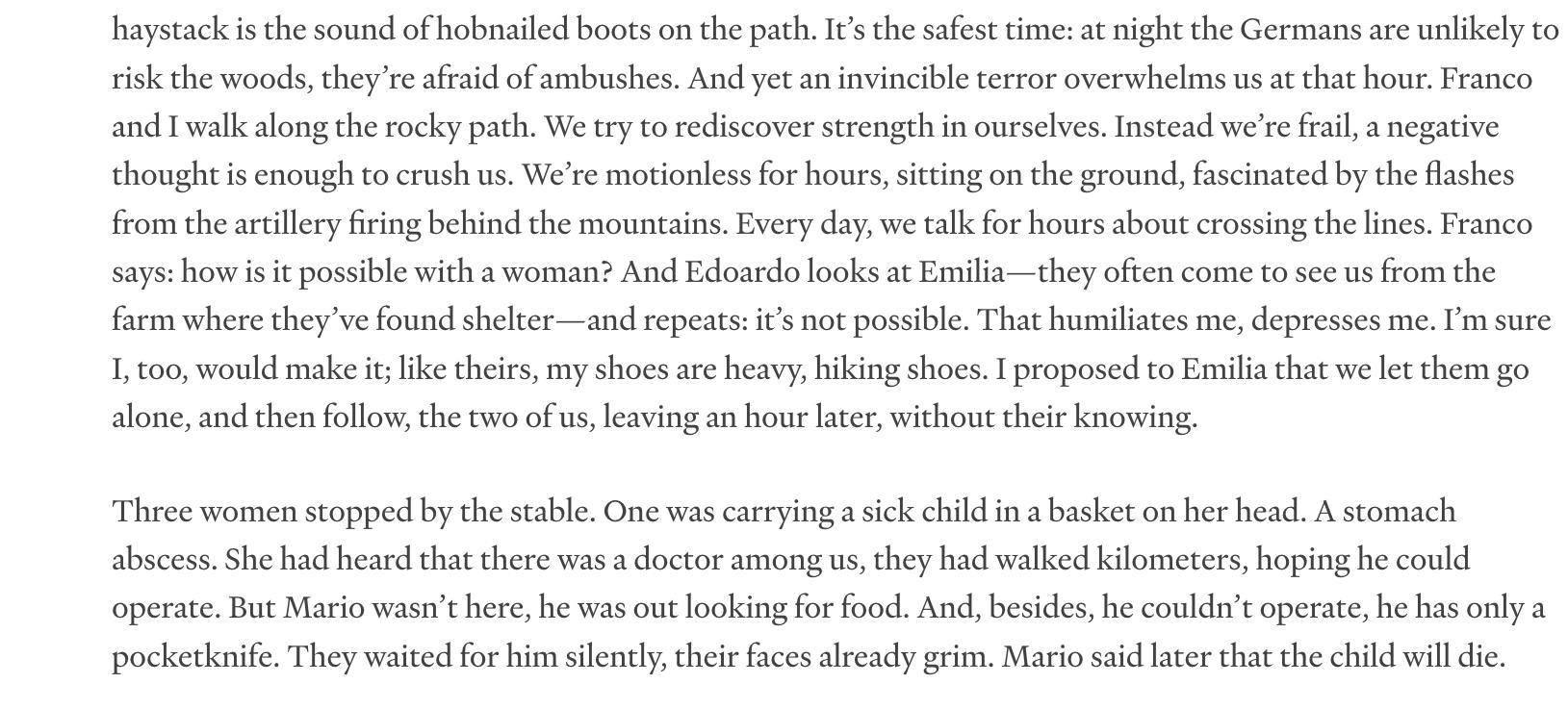



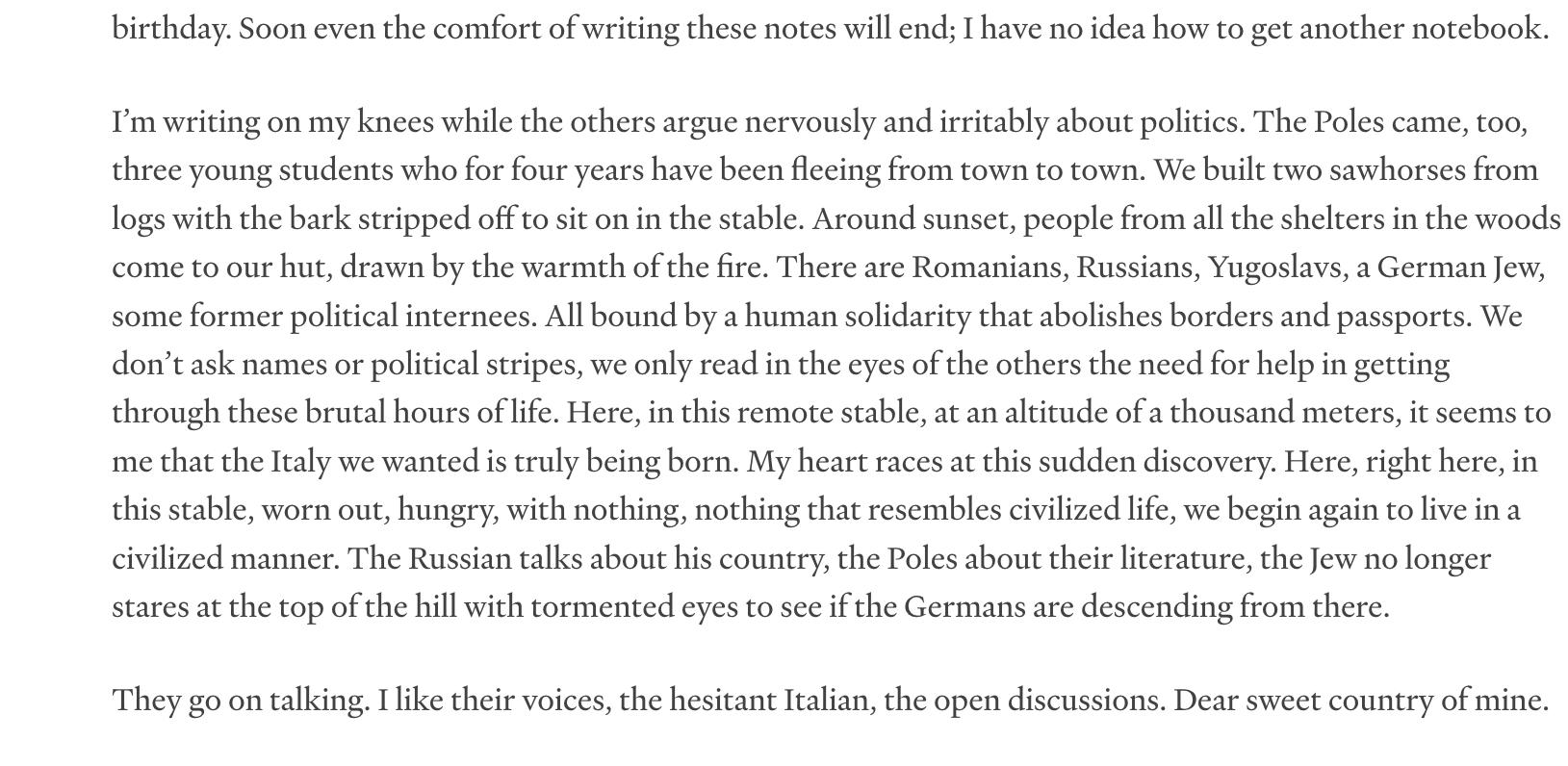


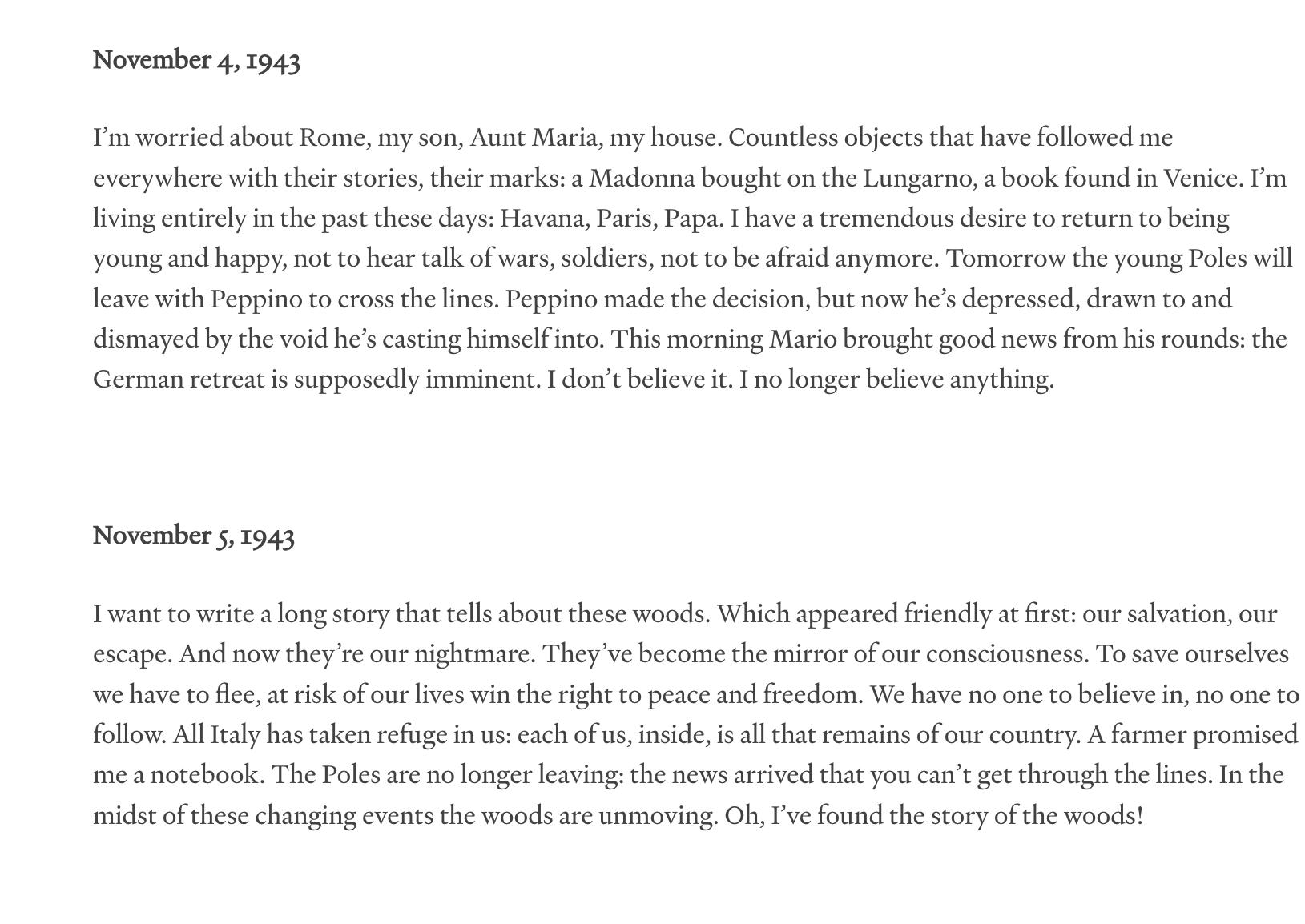





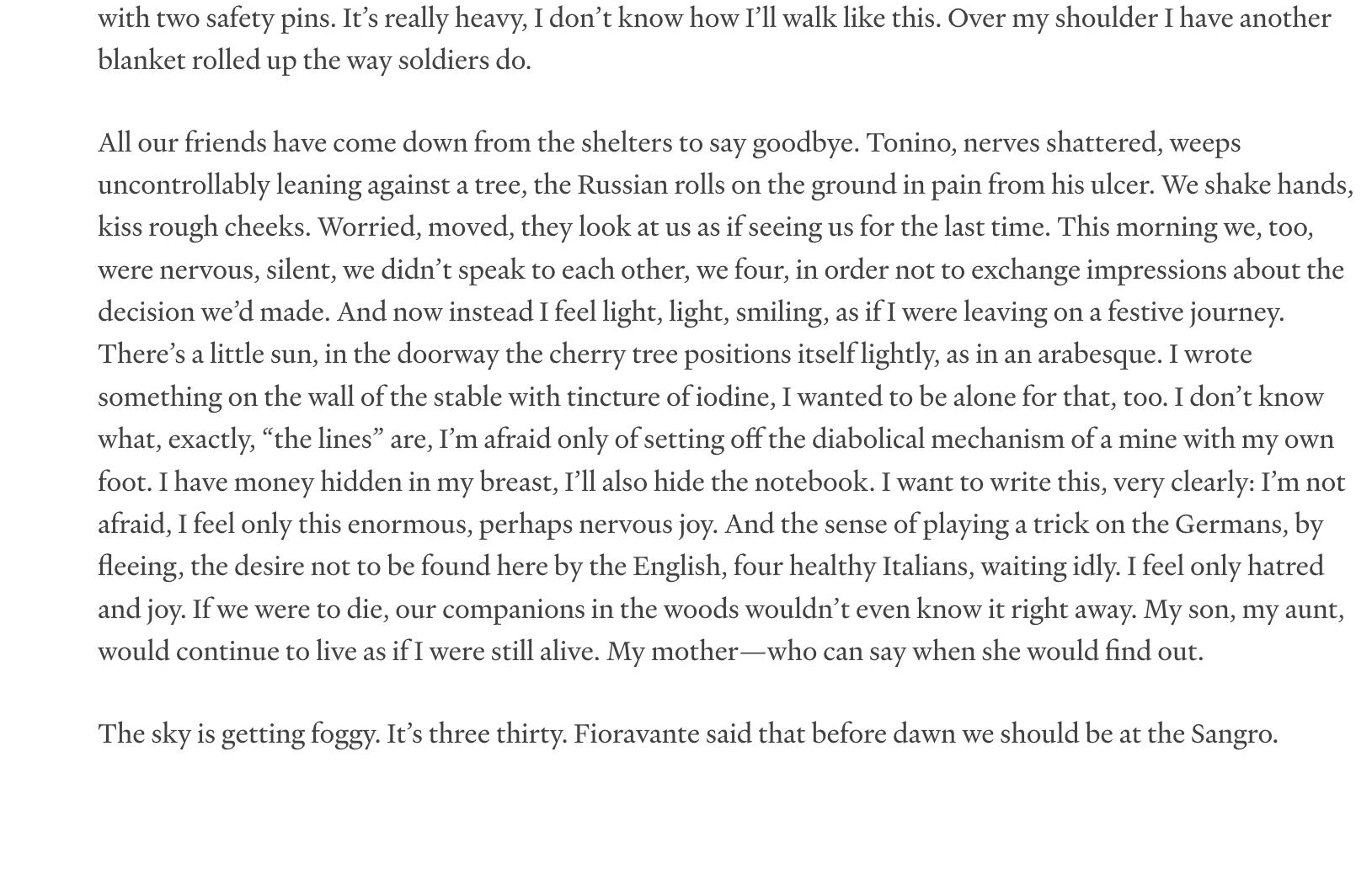

(1911–1997) was a bestselling Italian-Cuban feminist writer greatly influenced by the cultural developments that led to and resulted from World War II. In 1935, she was jailed for her antifascist activities in Italy. Two of her novels were also banned—Nessuno Torna Indietro (1938) and La Fuga (1940). In 1943, she was again imprisoned for her assistance with Radio Partigiana in Bari, where she was a Resistance radio personality known as Clorinda. After the war, she moved to Paris, where she lived until her death in 1997. A new English translation of her 1952 novel Forbidden Notebook, translated by Ann Goldstein and with a foreword by Jhumpa Lahiri, was published by Astra House in 2023 to great acclaim.
JILL FOULSTON is the translator of novels by Erri De Luca, Marco Balzano, Augusto De Angelis, and Piero Chiara. She lives in London.
